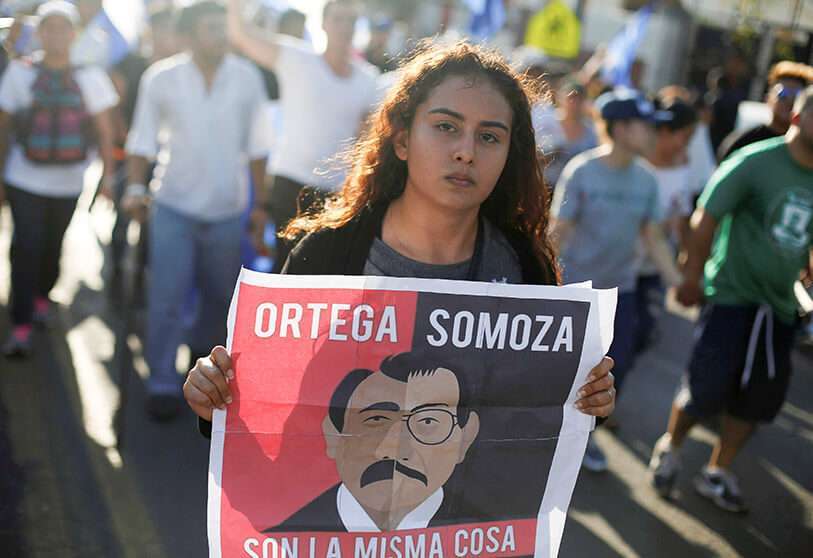Nicaraguan President Daniel Ortega formally launched his campaign for his third consecutive re-election on Monday, with a speech focused on attacking the bishops, whom he called "terrorists", as well as opposition leaders who have been imprisoned since May, and the United States.
In a ceremony held behind closed doors from his residence, which he occupies as Government House and as Secretary General of the ruling Sandinista National Liberation Front (FSLN), and accompanied by his wife and vice president, Rosario Murillo, who is also seeking re-election, Ortega assured that the Nicaraguan bishops, in the context of the popular revolt that broke out in April 2018, gave him an "ultimatum" to leave power within 24 hours.
At the event, broadcast on radio and television, the president said that the bishops "read us the ultimatum, where they gave us 24 hours to leave and hand over the government, the judiciary, the electoral branch, the National Assembly, to hand over everything".
"A coup just like the one that the sell-outs in Venezuela gave to (the late) Venezuelan president (Hugo) Chávez, which the people then reversed. Here (in Nicaragua) it was just the same and the people could not stand it," he said.

According to Ortega, the bishops, who acted as mediators in a national dialogue that sought a peaceful solution to the socio-political crisis that the country has been experiencing since April 2018, handed him "a shameful document, in the name of the terrorists", referring to the opposition who were the counterpart of the executive at the negotiating table, and who, in his opinion, served "the empire" of the United States.
In the document, the bishops "did not ask, they demanded the withdrawal of all the authorities and the installation of terrorists in the government at the service of the Yankees", he said.
The president said he accepted the document, folded the paper, thanked the bishops and then "we said that we had to recover peace, because in those days there was no peace in Nicaragua, what there was was terror, and the country was paralysed".

The National Police and hooded and armed civilians, sympathetic to Sandinismo, neutralised the anti-government demonstrations, which erupted on 18 April 2018 over controversial social security reforms and later turned into a demand for President Ortega's resignation.
The protests, described by the executive as an "attempted coup d'état", left at least 328 people dead, according to the Inter-American Commission on Human Rights (IACHR), although local organisations put the figure at 684 and the government acknowledges 200.
Ortega pointed to the imprisoned opposition leaders, including seven who aspired to be presidential candidates, as being "the real perpetrators of acts of terrorism" and those in charge of blocking roads on highways "were criminals".
The Sandinista leader added that the bishops who handed him the document "are terrorists too".

"Of course, they are terrorists. In other countries they would be on trial," he said.
He said that after that "terrorist coup" attempt in April 2018, his government has managed to restore peace, security and social programmes.
"Thank God we are going to these elections in peaceful conditions," noted Ortega, who accused Nicaraguans outside the country of "looking for ways to infiltrate people to commit acts of terrorism", although he did not offer proof.
"From outside the country they are going around asking, demanding that sanctions be applied to Nicaragua, which are no longer criminal acts, crimes against humanity," he said.

Ortega, who returned to power in 2007 after leading a government junta from 1979 to 1985 and presiding over the country for the first time from 1985 to 1990, said that, for the 7 November elections, "the path has already been mapped out" and that "it is a question of giving continuity to peace".
The president kicked off his campaign on Monday in homage to the 109th anniversary of the death of national hero Benjamín Zeledón.













